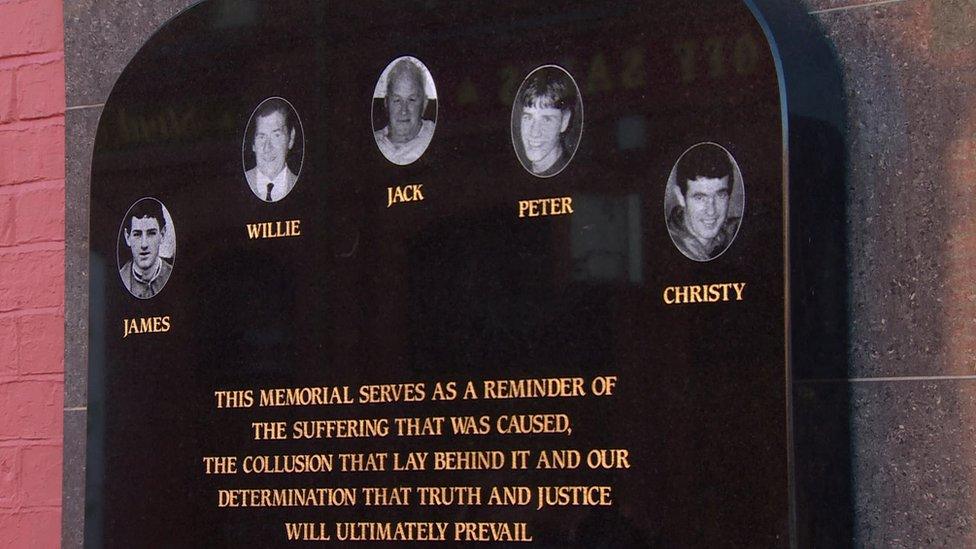Loyalist victims' widows receive 'significant' settlements
- Published
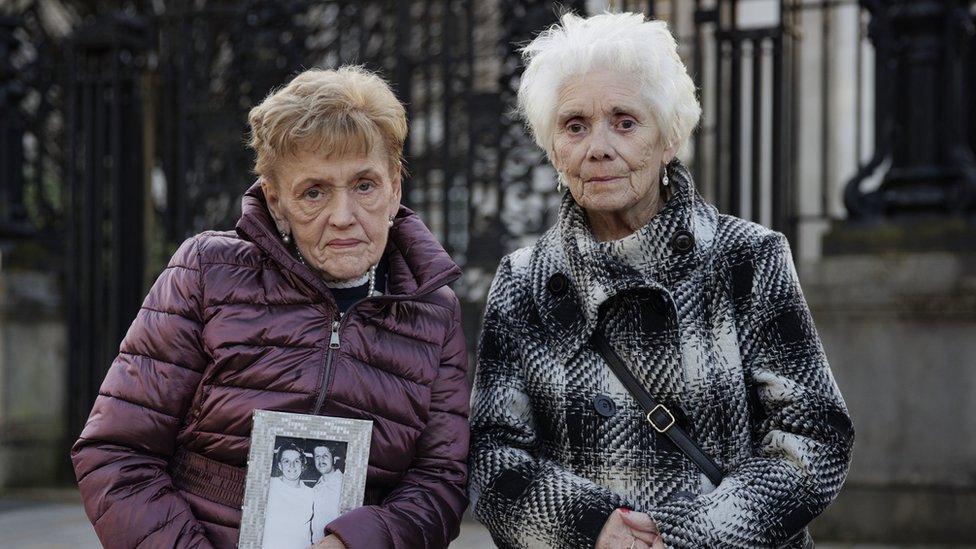
Marie Newton and Mary Loughrey had sued the Ministry of Defence (MoD) and Police Service of Northern Ireland (PSNI)
The widows of two men murdered by loyalist paramilitaries have been awarded "significant" settlements.
John Toland and James Loughrey were shot within days of each other in the villages of Eglinton and Greysteel, County Londonderry, in 1976.
Their families always claimed there was collusion and sued the Ministry of Defence (MoD) and Police Service of Northern Ireland (PSNI).
On Monday, the MoD and PSNI settled with no admission of liability.
At the High Court in Belfast on Monday, a barrister representing the victims' widows, Mary Loughrey and Marie Newton, confirmed that confidential settlements had been reached.
The defendants are also to pay the two widows' legal costs as part of the resolutions.
In a statement, a PSNI spokesperson said the terms of the settlement are confidential and "out of respect for those involved, we will not publicly discuss or comment on the specifics of the case".
An MoD spokesperson said: "The MoD has reached an out-of-court settlement in the civil claims brought by the widows of John Toland and Jim Loughrey.
"The settlement is on a full and final basis and without an admission of liability by the MoD."
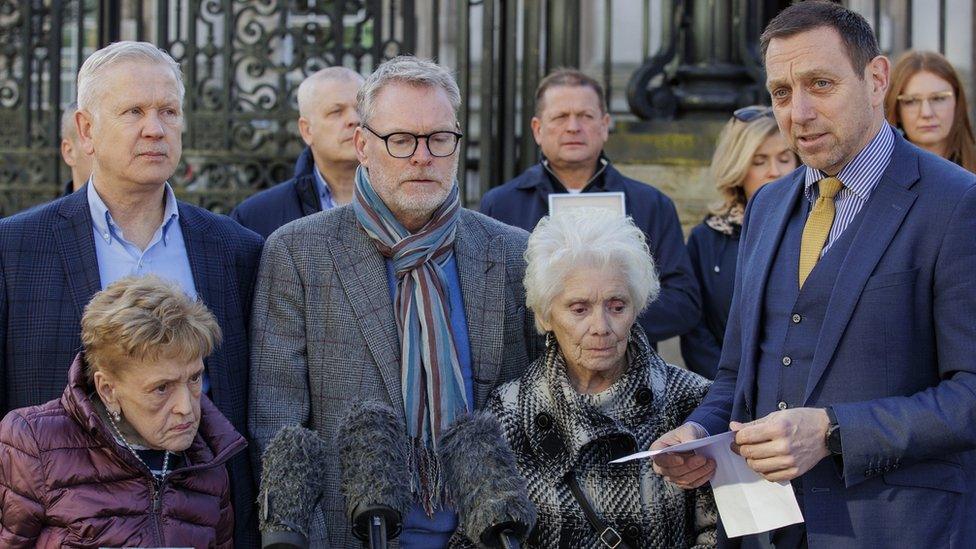
Relatives of John Toland and James Loughrey spoke to the media outside court in Belfast on Monday
Speaking outside court, solicitor Pádraig Ó Muirigh was unable to make any financial disclosures under the terms of confidentiality but did state the figure is "significant".
He said the Toland and Loughrey families are "satisfied with the outcome of this litigation".
John Toland was working as a barman in the Happy Landing pub in Eglinton when he was killed.
The 36-year-old was shot four times in the back after two men walked into the pub on 22 November 1976.
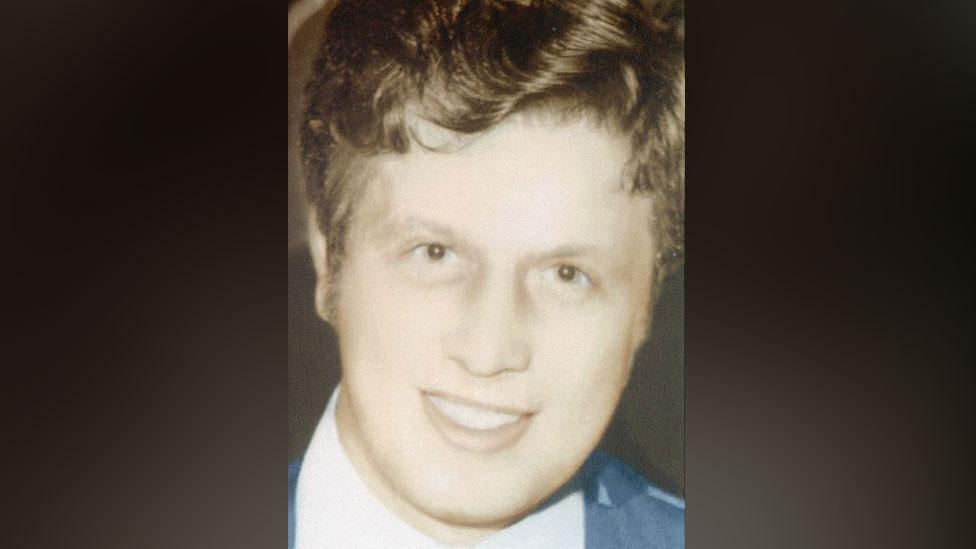
John Toland was murdered by the Ulster Defence Association (UDA) in Eglinton in 1976
The Ulster Freedom Fighters (UFF), a cover-name for the Ulster Defence Association (UDA), admitted responsibility for the murder and claimed that he had been passing information to the IRA.
His family always denied the claim and in 2012, the Historical Enquires Team (HET) found it to be entirely without foundation or substance.
The HET also found evidence of collusion between security forces and loyalist paramilitaries in the murder.
And they said it could not be ruled out in the murder of James Loughrey in nearby Greysteel the same month.
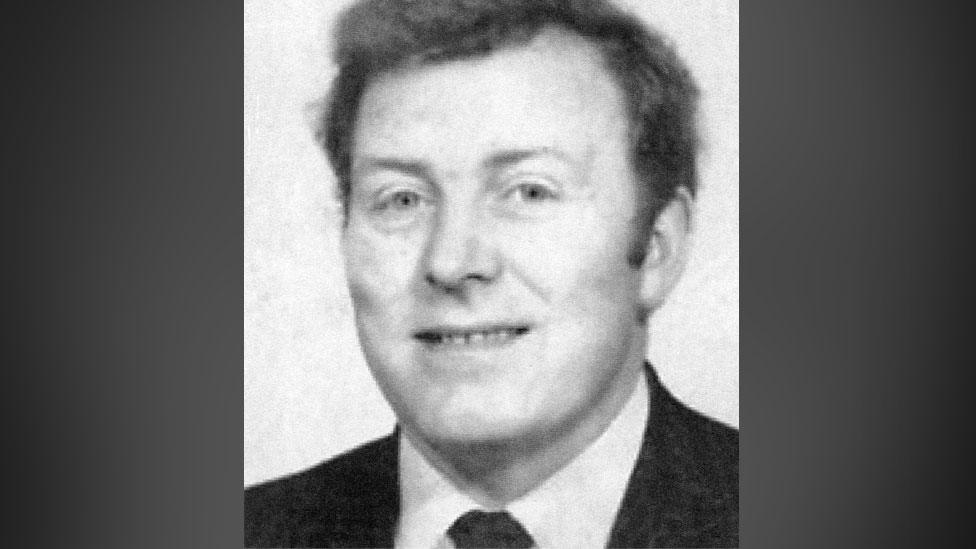
James Loughrey was shot dead in front of his family at their home in Greysteel in 1976
Mr Toland's family criticised the original police investigation into his murder and said that the allegations of collusion were never properly investigated.
In the initial police investigation, nobody was charged with any offences in relation to Mr Toland's murder.
However, there was a significant development in 1986 when Leonard Campbell, who was in prison for armed robbery, contacted the police and admitted his involvement in the murders of Mr Toland and two other men.
Mr Campbell along with two others - Colin Gray and David Hamilton, a serving soldier in the British army's Ulster Defence Regiment (UDR), were subsequently charged with Mr Toland's murder.
In 1987, David Hamilton was jailed for five years for providing the murder weapon after two murder charges against him were dropped.
Colin Gray was acquitted after it emerged that he had been in prison at the time of Mr Toland's murder.
Mr Louhgrey, who was also 36 years old, was shot by the UDA on 14 November and died on 25 November.
The father-of eight-had just returned from Mass with his family when loyalist paramilitaries entered his Greysteel home and shot him in front of his wife and children.
James Loughrey's son, John, said the family are relieved the case has now concluded.
"It has been a worthwhile journey because we have reached an outcome that gives us that degree of satisfaction," Mr Loughrey said.
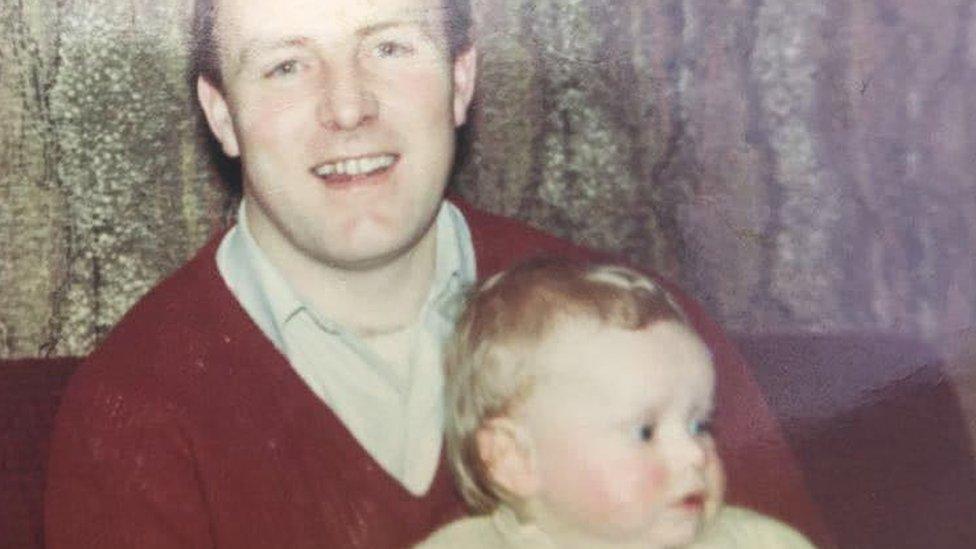
James Loughrey, pictured with son John, was shot in front of his family in Greysteel, County Londonderry in 1976
John also told BBC Radio Foyle's The North West Today on Monday that he feels "no anger" for the men responsible for his father's murder.
"For me personally, I have no anger towards those individuals within me," he said.
"I think it would damage me more to carry that kind of anger, hatred and resentment around with me."
'A positive outcome'
Sara Duddy, of the Pat Finucane Centre, which supported the families, said the settlement is "a positive outcome for two widows and two families devastated by these murders over forty years ago".
"Both widows had large, young families, and the emotional and financial impacts caused by Jim's and John's murders are still felt to this day," she said.
"This settlement goes some way to acknowledge the hurt caused.
"It is a disappointing that other families will not be afforded the same opportunity to pursue this course of action due to the shameful Legacy Act that stops civil actions."
Related topics
- Published21 September 2012

- Published11 November 2013
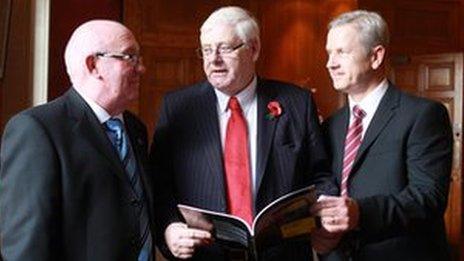
- Published26 April 2023
